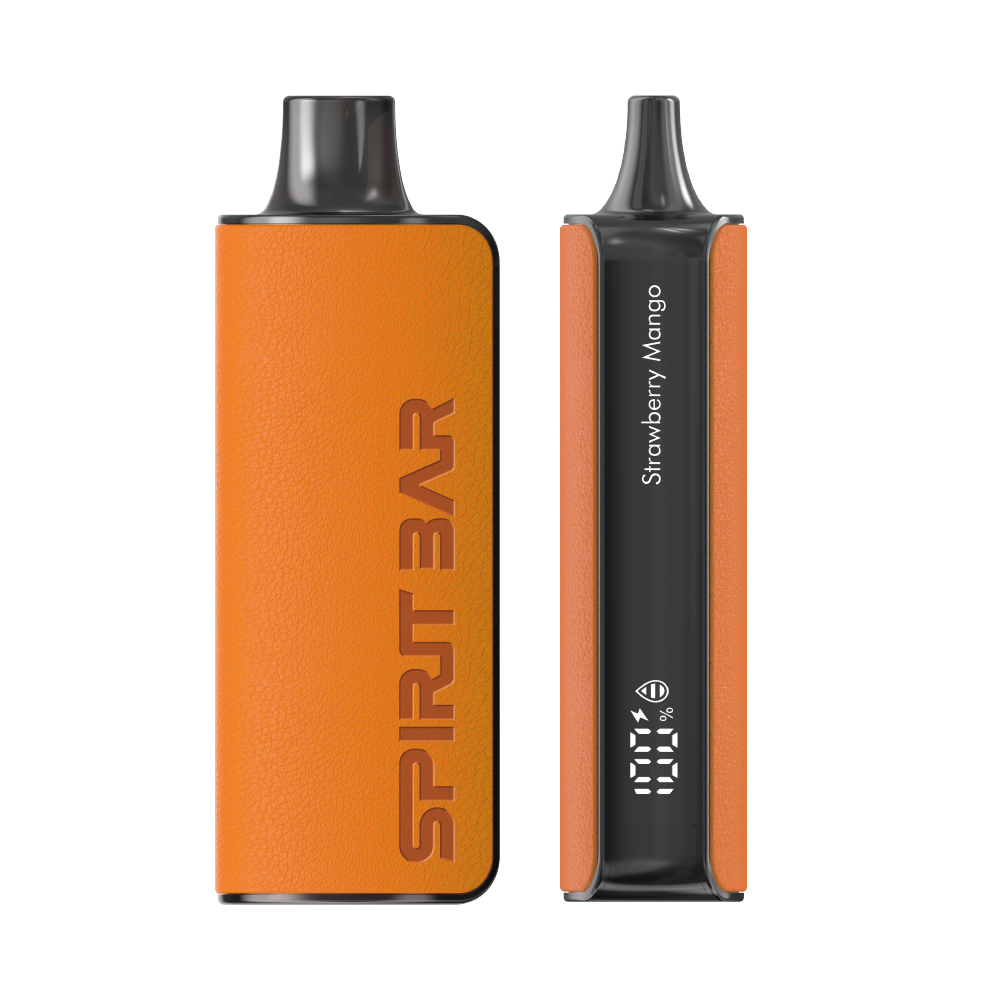Vaping While Pregnant: Risks and Potential Harm
As a healthcare professional, I have seen many pregnant women who struggle with nicotine addiction. While smoking cigarettes during pregnancy is known to be harmful to both the mother and the baby, some women turn to vaping as an alternative. However, the safety of vaping while pregnant is still a topic of debate among medical professionals.
According to recent studies, vaping during pregnancy can expose the baby to nicotine, which can have negative effects on the baby’s development. In addition, many vaping products contain other harmful chemicals that can be dangerous to the baby. Despite this, some women still choose to vape during pregnancy as a way to quit smoking cigarettes or to reduce their nicotine intake. It is important for healthcare providers to educate their patients on the potential risks of vaping while pregnant and to provide them with resources to quit smoking and vaping.
Understanding Vaping
As someone who is pregnant, it is important to understand the risks associated with vaping. Vaping is the act of inhaling and exhaling aerosol, often referred to as vapor, produced by an e-cigarette or similar device. E-cigarettes are battery-powered devices that heat a liquid (usually containing nicotine, flavorings, and other chemicals) into an aerosol that is inhaled.
While vaping is often marketed as a safer alternative to smoking traditional cigarettes, it is not without risks. Nicotine, which is present in most e-cigarettes, can harm the developing brain and organs of a fetus. In addition, the chemicals in e-cigarette aerosol can be harmful to both the mother and the fetus.
It is important to note that there is limited information available about the long-term effects of vaping, particularly during pregnancy. However, it is clear that the risks associated with vaping are not worth taking during this critical period of fetal development.
If you are struggling with nicotine addiction and are pregnant, there are resources available to help you quit. Talk to your healthcare provider about your options and seek support from family and friends. It is never too late to quit smoking or vaping and give your baby the best possible start in life.
Pregnancy and Substance Use
As a writer, I understand how important it is to take care of oneself during pregnancy. It is essential to avoid any harmful substances that could affect the health of the developing baby. Substance use during pregnancy can lead to serious health problems for both the mother and the baby.
According to the Centers for Disease Control and Prevention (CDC), substance use during pregnancy can cause low birth weight, premature birth, stillbirth, and sudden infant death syndrome (SIDS). It is crucial to avoid smoking, alcohol, and drug use during pregnancy.
This disposable vape captures the daring spirit of the high seas with its flask styling and signature pirate e-juice flavors. The extraordinary battery life provides 9000 indulgent puffs for extended vaping pleasure. Live boldly and freely with the Jack's Flask - a legendary vaping experience fit for a pirate's adventures.
Smoking during pregnancy can cause a range of health problems for the baby, including low birth weight, premature birth, and birth defects. Nicotine from smoking can also affect the baby’s brain development, leading to learning and behavioral problems in the future. Quitting smoking during pregnancy can be challenging, but it is possible with the right support and resources.
Alcohol consumption during pregnancy can also cause serious health problems for the baby, including fetal alcohol syndrome (FAS). FAS can cause physical and intellectual disabilities that can last a lifetime. It is important to avoid alcohol during pregnancy and seek help if you have a problem with alcohol.
Drug use during pregnancy, including prescription drugs, can also harm the baby. Some drugs can cause birth defects, while others can lead to withdrawal symptoms in the baby after birth. It is important to talk to your healthcare provider before taking any medications during pregnancy.
In conclusion, substance use during pregnancy can have serious consequences for the health of the mother and the baby. It is essential to avoid smoking, alcohol, and drug use during pregnancy and seek help if you need it. With the right support and resources, you can have a healthy pregnancy and a healthy baby.
Effects of Vaping While Pregnant
Impact on Mother’s Health
As a pregnant woman, vaping can have negative impacts on your health. Vaping can cause respiratory problems, which can lead to breathing difficulties and lung damage. It can also increase the risk of heart disease, which can lead to serious complications during pregnancy.
Impact on Fetal Development
Vaping during pregnancy can expose your baby to nicotine, which can have serious consequences on fetal development. Nicotine can restrict blood flow to the placenta, which can lead to low birth weight and premature birth. It can also harm the development of the baby’s brain and lungs.
Long-Term Effects on Child
The long-term effects of vaping during pregnancy on a child are not yet fully understood. However, studies have shown that prenatal exposure to nicotine can increase the risk of behavioral problems, learning disabilities, and attention deficit hyperactivity disorder (ADHD) in children.
It is important to note that there is a lack of information on maternal and fetal health outcomes following vaping during pregnancy. Therefore, it is recommended that pregnant women avoid vaping and smoking altogether to ensure the health of themselves and their unborn child.
Comparing Vaping to Other Substances
Vaping vs Smoking
As compared to smoking, vaping is considered to be less harmful. Smoking cigarettes during pregnancy can cause many negative health outcomes for both the pregnant woman and the developing fetus. Smoking can lead to premature birth, low birth weight, stillbirth, and sudden infant death syndrome (SIDS). On the other hand, vaping is considered to be less harmful as it does not produce tar or carbon monoxide, which are harmful substances found in cigarette smoke. However, vaping still contains nicotine, which can have negative effects on the developing fetus.
Vaping vs Alcohol
Alcohol consumption during pregnancy is known to cause fetal alcohol spectrum disorders (FASDs). FASDs can cause physical, behavioral, and intellectual disabilities that can last a lifetime. Vaping, on the other hand, has not been shown to cause FASDs or physical abnormalities in infants. However, vaping during pregnancy can still have negative effects on the developing fetus, as it contains nicotine, which can cause harm to the developing brain and other organs.
It is important to note that while vaping may be considered less harmful than smoking or alcohol consumption during pregnancy, it is still not recommended. Pregnant women should avoid all types of substances that can harm the developing fetus, including nicotine and other chemicals found in vaping products. It is recommended that pregnant women who are struggling with nicotine addiction seek help from healthcare professionals to quit smoking or vaping for the health of themselves and their developing fetus.
Preventing and Quitting Vaping During Pregnancy
This disposable vape captures the daring spirit of the high seas with its flask styling and signature pirate e-juice flavors. The extraordinary battery life provides 9000 indulgent puffs for extended vaping pleasure. Live boldly and freely with the Jack's Flask - a legendary vaping experience fit for a pirate's adventures.
As a pregnant woman, it is important to avoid vaping altogether to ensure the health of your developing baby. However, if you are already vaping, quitting as soon as possible is the best course of action. Here are some ways to prevent and quit vaping during pregnancy:
Medical Support
Consulting with a healthcare provider is an important first step in quitting vaping during pregnancy. Your healthcare provider can help you understand the risks of vaping while pregnant and provide guidance on how to quit. They may also recommend nicotine replacement therapy or other medications to help you quit.
Therapeutic Approaches
Therapeutic approaches, such as cognitive-behavioral therapy (CBT), can also be effective in helping pregnant women quit vaping. CBT helps individuals identify and change negative thought patterns and behaviors that contribute to addiction. This type of therapy can be done individually or in a group setting.
Support Groups
Joining a support group can also be beneficial for pregnant women who are trying to quit vaping. Support groups provide a safe and supportive environment for individuals to share their experiences and receive encouragement from others who are going through similar struggles. There are many online and in-person support groups available for pregnant women who are trying to quit vaping.
In summary, quitting vaping during pregnancy is crucial for the health of your developing baby. Seeking medical support, trying therapeutic approaches, and joining support groups can all be effective ways to prevent and quit vaping during pregnancy.
Frequently Asked Questions
How can I quit vaping while pregnant?
Quitting vaping can be challenging, but it is important for the health of you and your baby. Talk to your healthcare provider about strategies to quit vaping, such as nicotine replacement therapy or counseling. You can also consider joining a support group or using a quit smoking app to help you stay motivated.
What are the risks of vaping while pregnant?
Vaping while pregnant can expose your baby to nicotine, which can cause harm to their developing brain and lungs. It can also increase the risk of premature birth, low birth weight, and sudden infant death syndrome (SIDS).
Is it safe to be around someone who is vaping while pregnant?
Secondhand exposure to vaping can also be harmful to your baby. The aerosol from vaping contains harmful chemicals that can be inhaled by those around you. It is best to avoid being around anyone who is vaping while you are pregnant.
What are some alternative methods to cope with nicotine cravings during pregnancy?
There are many alternative methods to cope with nicotine cravings during pregnancy, such as chewing gum, using nicotine patches or gum, or practicing relaxation techniques like deep breathing or yoga. Talk to your healthcare provider about which methods might be right for you.
Can vaping while pregnant harm the baby’s development?
Yes, vaping while pregnant can harm your baby’s development. Nicotine exposure can cause harm to their developing brain and lungs, and increase the risk of premature birth, low birth weight, and sudden infant death syndrome (SIDS).
What are the long-term effects of vaping while pregnant?
The long-term effects of vaping while pregnant are not yet fully known, but studies suggest that it can have negative effects on your baby’s health and development. It is best to avoid vaping while pregnant to ensure the health of you and your baby.

